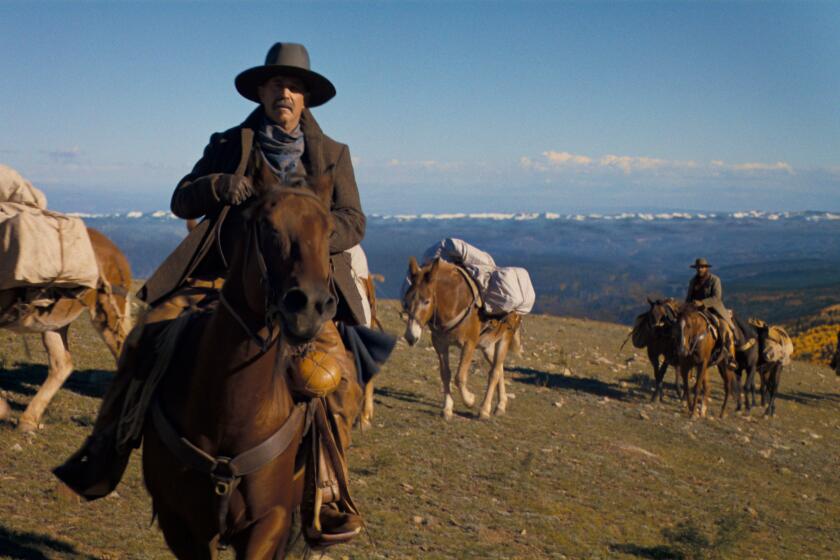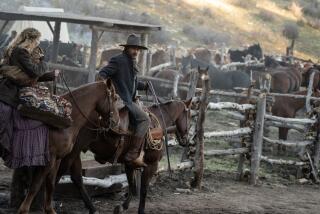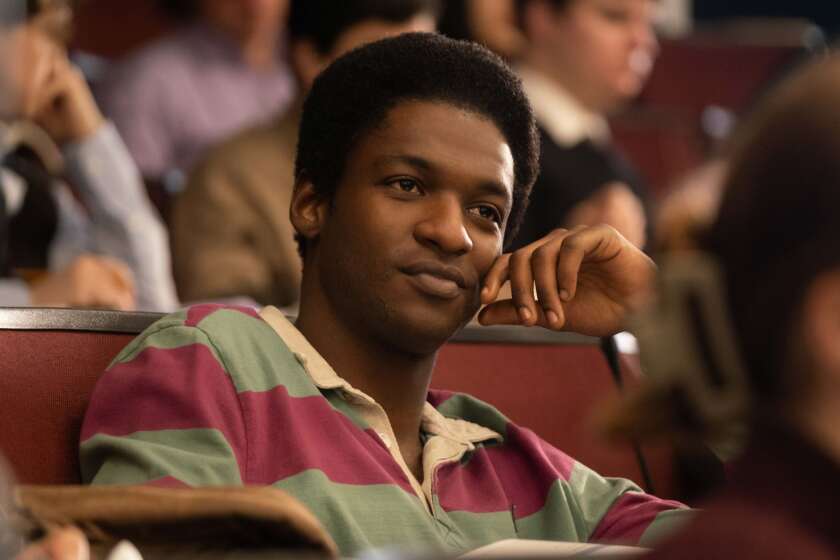Review: ‘Horizon,’ Costner’s western, is drab, overindulged tedium. Ready for 7 more hours of it?
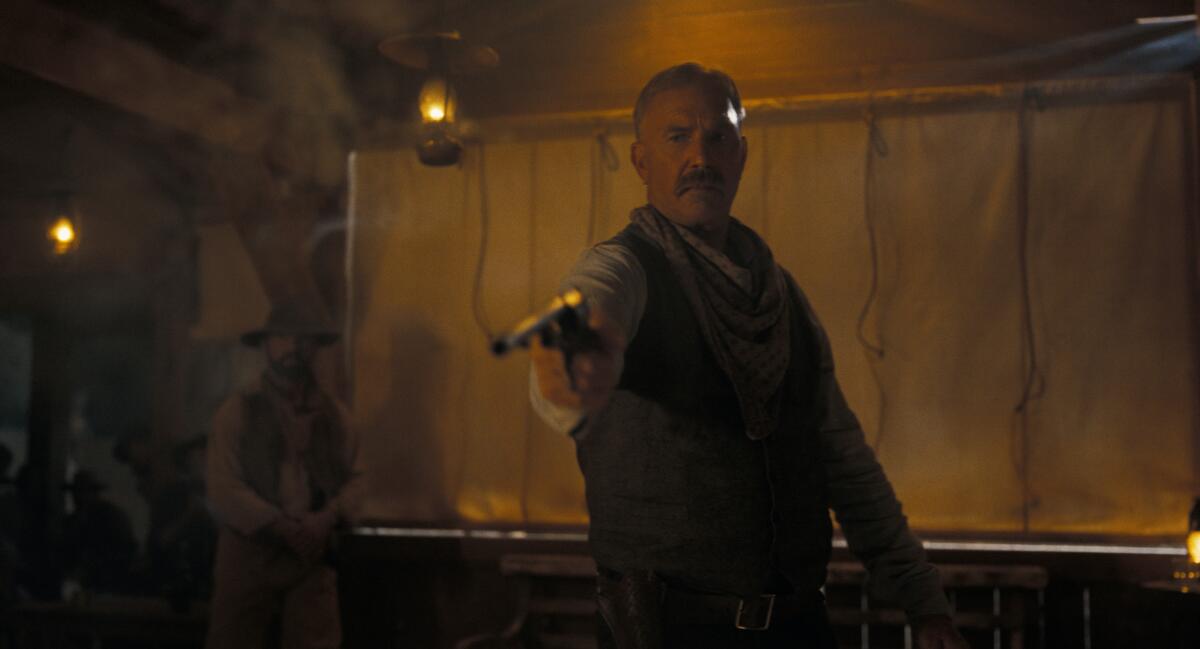
Kevin Costner’s new western epic “Horizon: An American Saga — Chapter 1” is the kind of film that begs the question: How did this get made? But we already know, because part of the film’s lore is that producer-director-star-co-writer Costner staked the funding himself, at great personal risk.
In order to devote himself to the planned four-part “Horizon: An American Saga,” the “Dances With Wolves” Oscar winner walked away from the blockbuster television series “Yellowstone” and put up his own property to self-fund this Civil War-era yarn, demonstrating a kind of dogged, single-minded commitment and determination akin to the pioneers of the Old West. Much like Francis Ford Coppola’s self-funded “Megalopolis,” which also premiered at last month’s Cannes Film Festival alongside “Horizon,” it is an admirable yet delusional dedication to the cause of deeply personal cinema.
But what unfolds on screen over the course of three hours and one minute in “Horizon: An American Saga — Chapter 1” can only be described as a massive boondoggle, a misguided and excruciatingly tedious cinematic experience. That Costner has promised three more installments feels like a threat.
“Chapter 1,” which premiered Sunday at Cannes, has all the hallmarks of TV. Times staffers debate whether that’s a good or bad thing.
“They don’t make them like this anymore” is usually a compliment. With “Horizon,” it’s a condemnation. They don’t make them like this anymore because we’ve evolved past this kind of broad, cheesy western melodrama (with questionable racial and sexual politics). They don’t make them like this anymore because Martin Scorsese carefully dismantled that kind of reductive western storytelling in “Killers of the Flower Moon,” delivering the eulogy himself.
There is a distinctly retro feel to this project — and not in a classic, old-fashioned way, but rather, in a dated, out-of-touch way, in the plotting and the style. It looks and sounds like a 1990s television miniseries, photographed with flat, bright compositions and scored to a syrupy, sentimental and emotionally oppressive score by John Debney.
Co-written with Jon Baird and Mark Kasdan, the script weaves together several disparate storylines set largely in 1863. By the end, we’ll come to understand that all roads lead to Horizon, a patch of cursed land that’s been heavily advertised to pioneers even though the Apache tribe has kept the land clear of anything other than the grave markers of white settlers for years.
In an early action sequence, Apache warriors attack a dance in the Horizon tent city, a scene that plays like a right-wing fever dream, where guns are salvation against the faceless Indigenous other. Costner does later take us into the Apache tribe, where an elder leader warns the young warriors that the settlers will keep coming, and we do eventually witness retaliatory white violence on the Apache. Perhaps we’ll see more nuanced depictions of Native American life in future installments, but for now, the representations are problematically generalized and seemingly perfunctory.
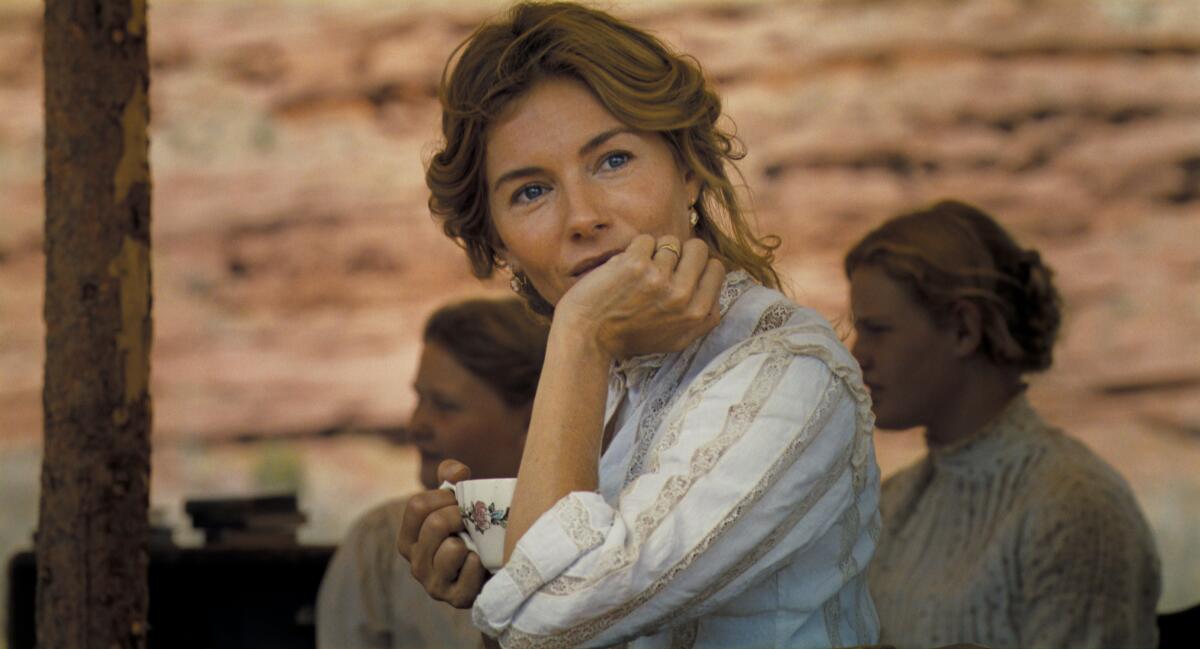
In the wake of this attack, the widowed Mrs. Kittredge (Sienna Miller) and her daughter Lizzie (Georgia MacPhail) are taken to the closest Army camp by Union soldiers, where the two women discover growing affection for their saviors, including Trent Gephart (Sam Worthington).
Elsewhere, the Sykes brothers from a Montana Territory family seek revenge on a young woman, Ellen (Jena Malone), who shot their father and ran away with their son. She’s settled in a tiny village in Wyoming Territory with an enterprising sex worker, Marigold (Abbey Lee), but can’t outrun her past. Marigold seduces horse trader Hayes Ellison (Costner) but the two have to go on the lam after a run-in with one of the evil Sykes brothers (Jamie Campbell Bower). Meanwhile, a contentious wagon train, led by Matthew Van Weyden (Luke Wilson), makes its way toward Horizon, battling the elements, and there’s also a band of Apache hunters hoping to turn Native scalps into commerce.
All of these storylines are cut together haphazardly and unevenly. There are random time jumps, and the scenes go on for too long or otherwise reveal themselves to be pointless. Instead of one narrative arc deeply explored, we’re stuck hopping between several, never caring or understanding much about anyone beyond the surface level.
There are so many speaking roles that we can’t possibly appreciate them, beyond extremely basic “black hat/white hat” understandings of Western archetypes, which ultimately render every character (aside from Costner’s) insultingly cartoonish. Big performances lend to the melodramatic tone that makes “Horizon” feel profoundly silly. Costner, stoic, reminds us of his powerful screen presence, but swirling around his character is an unfortunate circus of stereotypes.
“Horizon” is the kind of auteur project that makes one long for the idea of studio notes, for anyone to push back on Costner’s worst instincts. Unfortunately, he proves to be the judge, jury and executioner of his own passion project.
Katie Walsh is a Tribune News Service film critic.
'Horizon: An American Saga — Chapter 1'
Rating: R, for violence, some nudity and sexuality
Running time: 3 hours, 1 minute
Playing: In wide release Friday, June 28
More to Read
Only good movies
Get the Indie Focus newsletter, Mark Olsen's weekly guide to the world of cinema.
You may occasionally receive promotional content from the Los Angeles Times.
